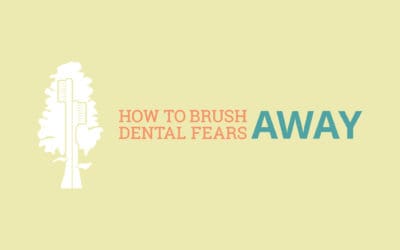Do you have pain in your jaw?
Does your jaw pop when you open it?
Do you struggle to open or move your jaw?
If so, you may find the cause of your pain within your temporomandibular joint (TMJ). Meaning, you might be one of the many people suffering from a TMJ disorder, aka TMD.
At Bumgardner Family Dental, we understand the various types of dental pain. Sometimes this pain is felt in the teeth, other times in the gums, and even in the jaw. There are many causes for each of these pains, but one is becoming significantly more common.
TMJ? TMD? What Does it All Mean?
TMJ refers to the joints on each side of your head that connect your lower jaw to your skull. These joints make it possible to open and close your mouth to allow for eating and speaking.
Many people use the abbreviation of TMJ to refer to a group of health problems relating to your jaw joint. However, TMJ disorders and the acronym, TMD, are used for better differentiation.
TMJ disorders have become increasingly common, with as many as 10 million Americans suffering from them each year. Additionally, it is more common in women than in men, with a nine to one ratio.
What Caused My TMD?
There are many causes of TMJ disorders that vary greatly, such as:
– Arthritis
– Autoimmune diseases
– Dental surgery
– Erosion of the joint
– Grinding or clenching teeth when asleep
– Infections
– Physical injury
– Structural jaw problems present at birth
Our daily activities can cause these problems, as well, especially when frequent strain is put on the jaw. For example, violinists experience TMD at a higher rate since they hold an instrument under their jaw.
Other factors that may be associated with a higher incidence of TMD are poor posture that strains the neck and face muscles, prolonged stress, poor diet, and lack of sleep.

Symptoms of TMD
Pain: TMJ disorders often cause pain when moving the jaw. You may also experience headaches, neckaches, backaches, earaches, or pain around the cheeks.
Sound: TMJ disorders can cause popping, clicking, or grinding noises when using the jaw. Eating, talking, or simply opening the mouth are examples of when these noises can occur.
Limited Movement: TMJ disorders can limit your mouth’s range of movement. You may not be able to open your mouth completely, and your jaw may lock up when opened, causing severe discomfort.
Treating TMD
Treatment for TMJ disorders varies from simple to more advanced therapies.
Some examples of treatments for TMD are:
– Injections
– Medicine
– Physical Therapy
– Splint Therapy
– Surgery
Many TMJ disorders are mild and pass after a couple of months of treatment. However, severe cases may be long-lasting and cause more discomfort. Either way, it is always important to seek professional advice with TMJ concerns to fix the problem fast and efficiently.
At Bumgardner Family Dental, we want you to have a pain-free smile!
We always take our patients’ complaints of pain seriously at Bumgardner Family Dental. We carefully assess your symptoms and look to see if you are showing any other signs of TMD. Then, we will talk with you about how to end any jaw pain you may be having. Even if you are coming in for a regular check-up, make sure to mention any pain you are experiencing.



